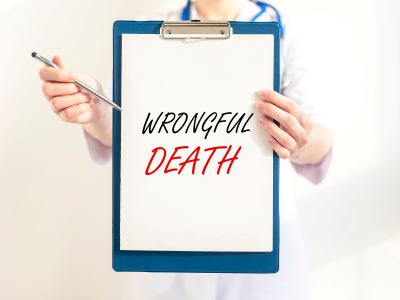
Negligence or a defective product causes most of the unintentional deaths in the United States. These incidents claim about a quarter million lives per year. Negligence, which is basically a lack of care, causes most of these incidents. Car crashes, falls, and assaults are the most common examples. Defective products, such as drugs with dangerous side-effects, also injure or kill many people.
The same basic legal procedure, which is outlined below, applies in all wrongful death claims. These claims are very complex, and insurance companies almost never voluntarily do the right thing. So, if a wrongful death has broken your circle of friends and family, a Columbia personal injury attorney must stand up for your legal and financial rights in court. Otherwise, survivors probably won’t get the compensation and justice they need and deserve.
Evaluating the Case
After a Columbia personal injury attorney takes a wrongful death case, evidence collection and damage assessment are usually the two first priorities.
Evidence in an accident claim, like the aforementioned car crashes, usually includes witness statements, the police accident report, and medical bills. Electronic evidence, such as a vehicle’s Event Data Recorder and footage from nearby surveillance cameras, effectively supplements this evidence.
Vehicle EDRs resemble commercial jet black box flight recorders. EDRs measure and record operational data, like steering angle and vehicle speed, that helps attorneys reconstruct car accidents. Video cameras are like eyewitnesses who are never wrong or biased. Even if the camera didn’t record the whole accident, the information it provides might still be vital.
Attorneys often rely on expert testimony in dangerous drug or other defective product matters. Sometimes, the expert establishes the standard of care and explains to jurors how the tortfeasor’s (negligent actor’s) conduct fell short of that care. Other times, the expert uses scientific studies linking a certain product, like talcum powder, with a certain side-effect, like ovarian cancer.
In terms of damages, wrongful death survivors in South Carolina are usually entitled to pecuniary losses, such as:
- Funeral, burial, and other final expenses,
- Lost future emotional support,
- Decedent’s final medical bills,
- Lost future financial support, and
- Decedent’s pain and suffering.
Attorneys often work with psychologists, accountants, and other such professionals to determine a fair amount of compensation for things like pain and suffering and lost future financial support.
Filing a Legal Action
When the case goes to court, before meaningful settlement negotiations begin, a case usually goes through the pretrial motion phase and the discovery phase.
Pretrial motions usually claim the survivor doesn’t have enough evidence to make a case or a procedural hurdle, like the statute of limitations, bars the action. Much like high school students, if attorneys do their homework, they usually ace these tests.
Defendants often conceal “smoking gun” evidence until discovery, when they must turn it over. Therefore, if a case settles before discovery, the best evidence, and maximum compensation, may be unavailable.
Resolving a Claim
Once these pretrial processes conclude, judges usually appoint mediators to supervise settlement negotiations. Since mediators enforce a duty to negotiate in good faith, medication often succeeds even if informal talks stalled or broke down altogether.
Essentially, a good-faith negotiation duty means parties cannot go through the motions and then say “I’ll see you in court.” Instead, they must compromise to reach an agreement if at all possible. Good negotiation skills are very important in mediation. Attorneys must know when to give in and when to stand firm.
Connect with a Dedicated Richland County Lawyer
Injury victims are entitled to significant compensation. For a free consultation with an experienced personal injury lawyer in Columbia, contact the Marc Brown Law Firm. We do not charge upfront legal fees in these matters.
Source:
cdc.gov/nchs/fastats/accidental-injury.htm